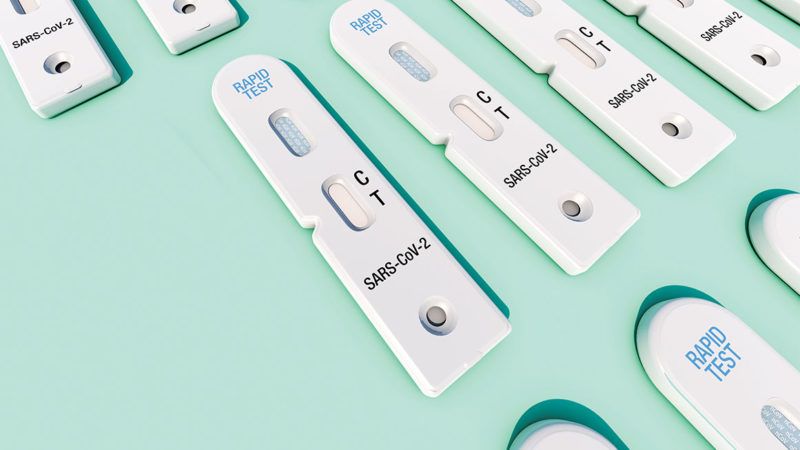Rapid Home COVID-19 Tests Are the Best Path to a New Normal. They're Illegal.
Delivering rapid at-home testing kits to 330 million Americans is "something we can actually do at warp speed."

COVID-19 diagnostic testing has been greatly scaled up from a few thousand tests per week back in early March to 2 million tests per week in early August. But the summer upsurge in COVID-19 diagnoses, hospitalizations, and deaths in the U.S. highlights the fact that we still don't have enough testing to provide individual Americans and health care professionals with the information needed to squelch the pandemic.
A huge part of the problem is that most asymptomatic, presymptomatic, and mildly afflicted people don't know they're infected, even as they spread the virus to others while working, shopping, and gathering in enclosed spaces such as bars and restaurants. Making cheap, fast tests available for use at workplaces, schools, and homes could solve this information deficit problem. "The way forward is not a perfect test," Harvard medical professor Ashish Jha argued in Time, "but one offering rapid results."
The good news is that a number of companies, including biotech startup E25Bio, diagnostics maker OraSure, and the 3M Co., are working on and could quickly deploy rapid at-home COVID-19 diagnostic tests. These antigen tests work by detecting, within minutes, the presence of coronavirus proteins using specific antibodies embedded on a paper test strip coated with nasal swab samples or saliva. Somewhat like at-home pregnancy tests, the antigen tests change color or reveal lines if COVID-19 proteins are recognized.
But there is one major problem. "Everyone says, 'Why aren't you doing this already?' My answer is, 'It is illegal to do this right now,'" Harvard epidemiologist Michael Mina told The Harvard Gazette in August. "Until the regulatory landscape changes, those companies have no reason to bring a product to market."
It took Food and Drug Administration regulators until July to finally issue the agency's template for approving tests that "can be performed entirely at home or in other settings besides a lab" and without a prescription.
It would cost around $20 billion to provide 330 million Americans with rapid at-home test kits costing $1 each for weekly use. Given that the federal government has already borrowed $3 trillion in response to the pandemic and appears interested in borrowing trillions more, that would be a real bargain. Such a testing regime "will stop the vast majority of transmission and it will cause these outbreaks to disappear in a matter of weeks," Mina said. "This is something we can actually do at warp speed."


Show Comments (137)